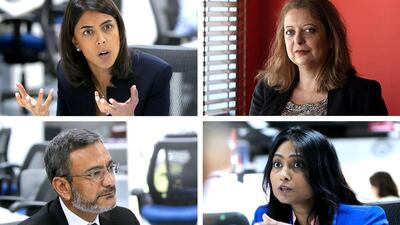I work at an outlet in Abu Dhabi and have some debt that is now really difficult to manage. I had some financial problems back home in India and had to send money in large amounts. This was mainly for the medical treatment for my wife and mother and other expenses. Also, I was building a house and it collapsed halfway through the build. Unfortunately there was no insurance coverage at that time and I had to rebuild it. Now it is almost finished. So, over the past two years, the debt built up and now I have credit cards and loans amounting to Dh150,000. I have three loans totalling Dh122,000 and three credit cards with outstanding balances of about Dh20,500. The problem is my monthly salary of Dh6,482 is no longer enough to cover all the monthly instalments. I used to get monthly incentives of about Dh2,000. But recently there has been some cost-cutting steps from the company and I will be getting only the salary from next month onwards. With that salary, I will not be able to pay all the instalments and also send home money for my family expenses. I have no savings and will not be able to go home for a long time to come. My last holiday was in June 2015. I have talked to the banks to reduce the instalments and I am waiting for their answer. SK, Abu Dhabi
Debt panellist 1: Jamal Alvi, chief credit officer at Abu Dhabi Isamic Bank
The best option is to ask the bank where your salary is getting transferred to consolidate the debt. But given that the exposure is high versus salary, it may boil down to you approaching each card and loan issuer and getting onto a repayment plan.
UAE residents must be careful not to use credit cards as a debt instrument. It is a payment product and should be used as such.
Debt panellist 2: Alice Haine, personal finance editor at The National
It appears you have learnt a harsh lesson that many face when managing their personal finances. Unfortunately, unforeseen life events crop up all the time and for those that do not have adequate savings to cover them, this can leave the unprepared in a dire financial mess. In your case, not insuring the build of your house, your family’s health issues and your changing circumstances at work have left you with debts you can no longer afford repay.
As your repayments amount to more than you earn, it is unlikely you will qualify for a debt consolidation loan, as you have gone past the 50 per cent debt burden ratio stipulated by the Central Bank.
Instead, you have three choices:
1. Raise some capital fast to clear your debts
You may need to sell the home you have built and use it to pay off your liabilities or ask your family for financial help. Do they have anything squirrelled away to ease your debt burden? Even clearing some of the smaller credit card debts will make managing your repayments easier and leave you with some income to actually live on. At the same time, you need to drastically cut your outgoings – that trip home will need to be put on hold while your sort your finances and large remittances to support family members should be avoided. It might also be worth looking for another job. If your income has been cut, you are perfectly within your rights to seek out a new post.
2. Negotiate directly with your lenders
You have already approached the banks, which is the right step to take. But you need to be clear about what you want – ask them to renegotiate the interest rate applied or to extend the tenure of the loan to reduce the monthly repayment. The bank you transfer your salary to will be the most likely to help.
3. Get outside help
If negotiating with the banks yourself is too daunting, then perhaps consider using a debt rescheduling service that will do this on your behalf. One example is Lotus Loans and Rescheduling Services, which helps debtors agree better repayment terms on their liabilities. You will be charged a fee for this service, but it means an expert is doing the negotiations for you. And if you want support from others in your situation, you could turn to a newly launched website called savememoney.ae, where advice is offered to those in financial trouble. Sharing your woes could help you find the solution you need. Good luck.
The Debt Panel brings together four financial experts: Jamal Alvi, the chief credit officer at Abu Dhabi Islamic Bank; Ambareen Musa, the founder and chief executive of the comparison website Souqalmal.com; Rasheda Khatun Khan, a wealth and wellness planner and founder of Design Your Life; and Keren Bobker, The National's On Your Side columnist and an independent financial adviser with Holborn Assets in Dubai. Together they answer queries in a weekly online column to help readers better tackle their debts. If you have a question for the panel, write to pf@thenational.ae.
pf@thenational.ae
Follow us on Twitter @TheNationalPF

